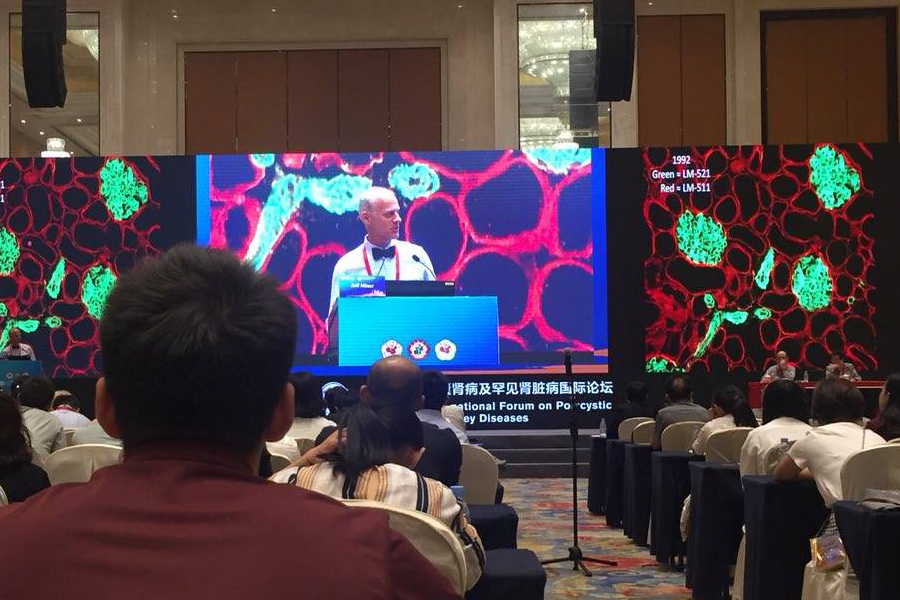
Jeff Miner, PhD, (at podium) addresses Chinese and European scientists and clinicians.
The 2nd International Forum on Polycystic and Rare Kidney Diseases, held in Hefei, Anhui Province, China, September 3-5, 2018, brought together researchers and clinicians from around the world to discuss the latest scientific and medical advances in polycystic and rare kidney disease research. The forum covered topics ranging from identification and characterization of disease-causing variants and underlying pathogenesis to clinical diagnosis, prognosis, and targets for therapy.
Attending the meeting was Professor of Medicine Jeff Miner, PhD, FASN, Division of Nephrology, who studies the rare kidney disorder Alport syndrome. “It was a great opportunity to connect with Chinese and European scientists and clinicians working on Alport syndrome genetics, diagnosis, and treatments,” he says. “There was also a large contingent of polycystic kidney disease researchers and clinicians from the U.S., Europe, and China who presented cutting edge lectures. As my first trip to China, it was a terrific experience.”
More than 30 experts from 10 countries and 40 domestic speakers among the world’s top academics gave lectures at the conference. Dr. Miner presented Insights into Alport syndrome, a disease of the glomerular basement membrane.
The forum was hosted by Shanghai Medical Association and Anhui Medical Association, and was co-sponsored by the Society of Nephrology, Shanghai Medical Association; the Rare Disease Branch, Beijing Medical Association; and the Society of Nephrology, Anhui Medical Association. The city of Hefei, where the conference was held, happens to be the hometown of two members of our division. Zhao Sun, PhD, is a Postdoc fellow in the Humphreys laboratory, and Yanyan Zhao is a Research Assistant the Feng Chen laboratory.
In the U.S., a rare disease is defined as any disease or condition that affects fewer than 200,000 people. The American Kidney Fund (AKF) recently announced that it has significantly expanded the information available on its website for 17 rare diseases (including Alport syndrome) that can lead to chronic kidney disease, end-stage renal disease, or kidney failure. The expanded rare disease section of AKF’s website includes information links to resources and support groups for patients and their families.
Follow Dr. Miner on Twitter @JeffMinerPhD.